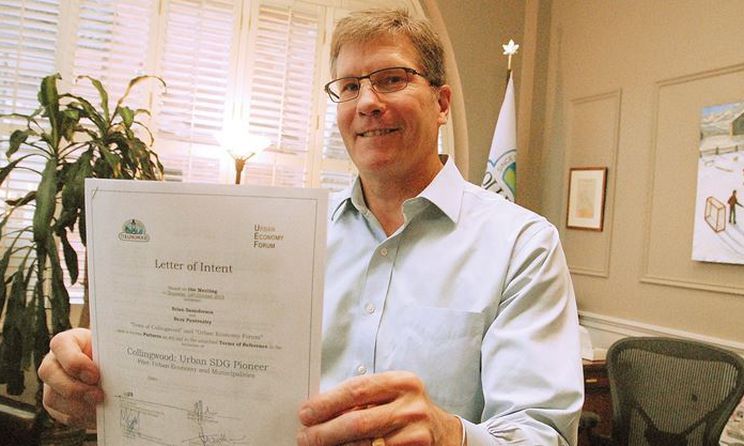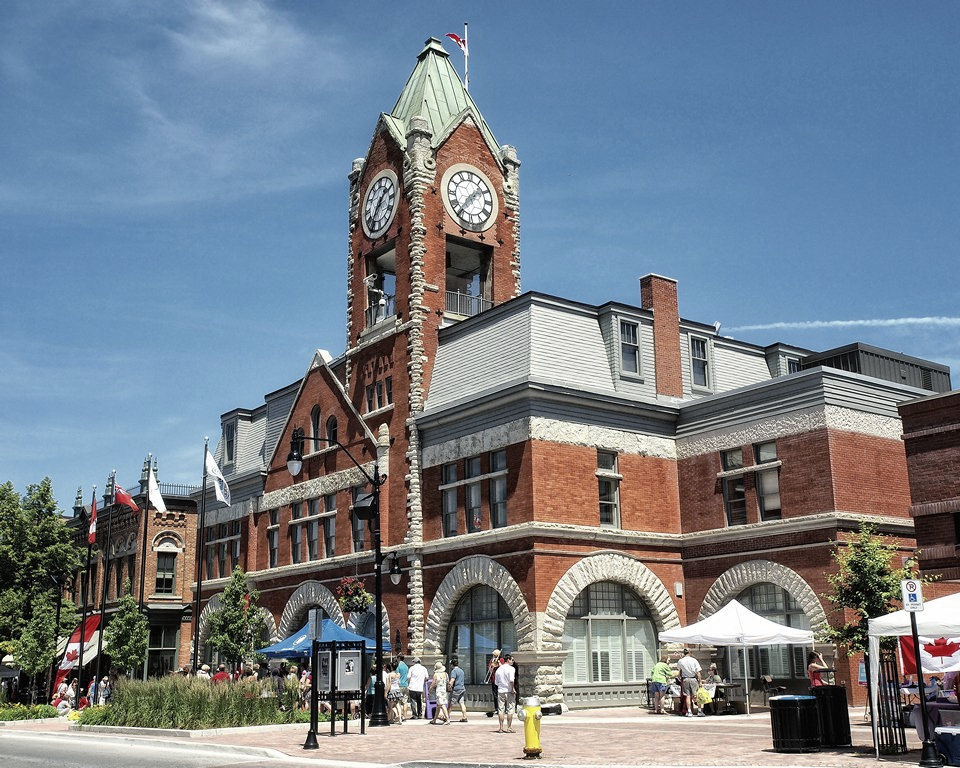About Habitat in Towns
Habitat in Towns is an international gathering for mayors and town councilors, urban practitioners and those in academia to share their practices about sustainability and how they are faced with problems of non-sustainable aspects of cities and towns. In Habitat in Towns, we will talk about livelihoods and lifestyles and how, based on good practices, we can create transformation toward sustainability.
Habitat in Towns will try to create synergies to work together to increase efficiency. Town leaders by coming together at the Habitat in Towns summit will work towards promising next steps in different areas and themes to create a campaign to realize SDGs at the local level.
This Annual Collingwood World Summit, Habitat in Towns, will encourage all town leaders to elaborate and exchange their experiences about transition towards sustainability based on urban assessments. They will come together to create a world databank for urban assessments and evaluate their progress based on the City Prosperity Initiative Platform (CPI). As a symbolic measure they will be encouraged to realize sustainable development goals incrementally 10% per year.
Urban Economy Forum (UEF), in collaboration with UN-Habitat and the Town of Collingwood, will try to establish the World Secretariat for Habitat in Towns. Habitat in Towns will encourage central governments, international agencies, and the private sector to support town and city leaders in this process. We strongly believe that nations must invest in this process to secure a sustainable future.
While Habitat in Towns is an annual gathering, at the town level, it is also a day-to-day program and campaign to realize Sustainable Development Goals. The Town of Collingwood, the host city in collaboration with UN-Habitat- Urban Economy Forum, is honoured to invite all the city leaders, town/ urban managers, and relevant stakeholders to come together and join in this international initiative.
This is our statement as well as an invitation from key partners, to the world’s towns.
Rationale
The world is now predominantly urban. By 2050, it is estimated that two-thirds of all humanity - 6.5 billion people, will be living in urban areas. We are faced with serious challenges in urban development that is related to urban governance, city leadership, sustainability in urban development, access to methods and tools, and knowledge.
We are also faced with the serious dimension of climate change. We used to read about climate change in books, we hear about it in the news, and now we are faced with it in reality, impacting our lives, and very soon it will change our lifestyle.
In the process of urbanization, the role of towns in the world is important because in many countries and societies, towns are centrally placed in the process of urbanization and climate change. They are faced with all the same problems as our metropolitan cities, but at a different scale. Towns have many opportunities to solve these problems within their own context. These opportunities can create a great change and transformational movement in the world.
We believe we can begin this transition starting with towns.
When developing metropolises and capitals, we are faced with complex multi-dimensional problems. These problems are difficult to understand and are better understood by simplifying these complex challenges to a comprehendible one. Towns still have this opportunity to analyze each problem within the context of a clear subject and less interaction with other problems. Their challenges are more independent.
Therefore, to realize Sustainable Development Goals (SDGs), towns have a key role to play. They can work toward implementing SDGs based on their scale and population. Towns can have common priorities and objectives about their present and future. One of the most important concepts to consider is the social relationship of citizens and other elements of society. Families and women in particular, for example, have great potential to impact their town’s development; youth being one of the major resources to influence change.
Even though local governments are increasingly being recognized for their accomplishments as champions for sustainable development, they require capacity and resources to ensure that further urban development is well-organized and equitable. Whether or not towns and local governments are sufficiently empowered will determine whether the SDGs succeed or fail.
Habitat in Towns Resolution
The resolution that was adopted as an output of the event can be downloaded by clicking on the button below.


